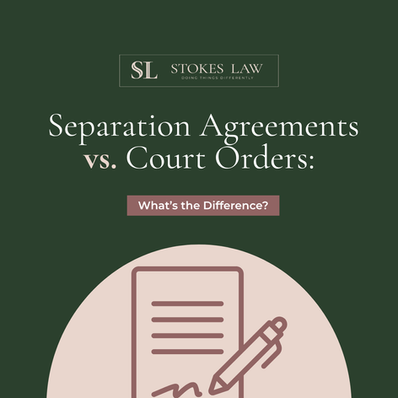top of page


SPOUSAL SUPPORT: What You Need to Know after Separation
Spousal support is often one of the most uncertain and emotionally charged issues following separation. Many people are unsure whether spousal support applies to their situation, how it is determined, or how long it may last.
In Alberta, spousal support is NOT automatic. It depends on the circumstances of the relationship and the financial realities of each person after separation.
Raman Assi
2 days ago2 min read


Not All Income Is Equal: How Alberta Courts Assess Income for Child and Spousal Support
A common misconception in family law is that child support and spousal support are calculated by simply taking a payor’s total income from their tax return (often Line 15000) and plugging that number into a calculator. In Alberta, that approach is often incomplete and, in some cases, misleading. While Line 15000 is usually the starting point, it is not always the final answer.

Harpreet Aulakh
Jan 125 min read


Who Gets the Dog? Understanding Pet Ownership Disputes in Alberta Separations
One of my earlier consultations in the legal profession was about how to share a pet in a divorce. For many couples, a pet is more than a possession — it’s a beloved family member. But when a relationship ends, the question of who keeps the pet can quickly become one of the most emotional issues in the separation. Unfortunately, Alberta law doesn’t always line up with how people feel about their animals.

Ozan S. Guzel
Dec 9, 20252 min read


Lump Sum vs. Periodic Partner Support in Alberta: Understanding the Difference
When separating partners begin discussing support, the threshold question is whether entitlement exists. If it does, the next issues are quantum, duration, and how support should be paid. One of the most significant choices is whether partner support should be paid monthly or as a single lump sum. Both structures are available under Alberta law, and both can satisfy compensatory or needs-based objectives under the Divorce Act and the Family Law Act

Harpreet Aulakh
Dec 9, 20255 min read


A Final Complication: When a spouse dies before divorce or separation is finalized.
Divorce or separation is a difficult process that can become even more complex if a spouse or adult interdependent partner dies before the legal proceedings are finalized.
In Alberta, the rules that govern divorce, separation, and Wills and Estates law converge, creating unique challenges. The death of a partner does not necessarily mean that the family law process is discontinued; the outcome often depends entirely on the timing of key legal steps taken before the person p

Rylan Alston
Dec 4, 20253 min read


Property Division for Unmarried Spouses: Family Property Act vs. Matrimonial Property Act
This article addresses how property is divided for unmarried couples in Alberta, focusing on the distinction between parties who separated before and after January 1, 2020. In Alberta, what is commonly referred to as common-law partners is legally classified as Adult Interdependent Partners (AIPs) under the Adult Interdependent Relationships Act.

Rylan Alston
Nov 10, 20253 min read


Who Gets What: How Property Is Divided After Separation in Alberta
When a relationship ends, one of the biggest questions is: who gets what? Many people assume that separation means splitting everything 50/50. While that can be a starting point, it’s not necessarily how things always end up.
In Alberta, the Family Property Act sets out how assets and debts are divided for both married spouses and Adult Interdependent Partners (AIPs). The goal is fairness, but fairness can look different depending on your situation.

Harpreet Aulakh
Nov 10, 20254 min read


Navigating Contact Orders in Alberta: What You Need to Know
When parents separate or divorce, a significant and frequently emotional question that comes up is how the children will maintain meaningful relationships with both sides of their family. While parenting orders deal with parenting and decision-making responsibilities, contact orders serve a distinct but equally important purpose: they ensure that children can continue to interact with significant people in their lives, even if those individuals do not have parenting rights.

Misturah (Misty) Oshodi
Nov 10, 20253 min read


Separation Agreements vs. Court Orders: What’s the Difference?
When a relationship ends, one of the biggest questions is how to settle the practical issues including parenting time, child or spousal support, and property division. In Alberta, there are two main ways to create legally binding arrangements: through a separation agreement or a court order. While both can address the same issues, the process and impact of each can be very different. Understanding the distinction can help you choose the path that’s right for your situation.

Harpreet Aulakh
Oct 8, 20253 min read


Parenting Time and Decision-Making Responsibility in Alberta: What Separated Parents Need to Know
When parents separate, one of the most important matters to resolve is how they will continue to raise their children. In Alberta, the legal terms for custody have evolved. The concepts of “custody” and “access” are now referred to as parenting time and decision-making responsibility, aligning with updates to both the Divorce Act and Family Law Act.

Stokes Law
Oct 2, 20252 min read


Challenges of Parental Alienation
Parental alienation is a serious issue that many parents face during divorce or separation. It occurs when one parent manipulates a child into developing hostile or negative perceptions of the other parent. This manipulation can be obvious or subtle.
Overt alienating behaviors include one parent explicitly badmouthing the other to the child, preventing scheduled parenting time, or threatening to withhold affection if the child has a relationship with the other parent.

Rylan Alston
Oct 2, 20253 min read


What Is a Personal Directive and Why Is It Important to Have
When people think about planning for the future, they often focus on Wills. A Will is important - it deals with your money, property, and belongings after you pass away. But what about decisions while you’re still alive, if you’re unable to make them yourself? That’s where a Personal Directive comes in.

Rikesh Wadhwa
Oct 2, 20252 min read


Understanding Income Imputation and When Potential Earnings Matter
In family law, fair financial support for children and former spouses is a key priority. But what happens when one party claims little or no income despite having the skills or experience to earn more? In such cases, the court may decide to impute income, meaning it assigns a reasonable income figure to that individual based on what they could be earning, rather than what they actually are.

Stokes Law
Sep 11, 20252 min read


From Write-Offs to Pay-Ups: How Courts Impute Business Income
In family law, determining a spouse’s income is essential to calculating proper child and spousal support. When your ex-partner is an employee, the process is usually straightforward: line 15000 of their tax return often reflects their true income. But what happens when they are self-employed or own a corporation? This can complicate the picture significantly. Courts in Alberta have tools to ensure fairness in these cases.

Stokes Law
Sep 11, 20253 min read


Moving After Separation: What You Need to Know About Mobility Applications in Alberta
When parents separate, many legal questions arise about parenting time, child support, and dividing property. But one of the most difficult (and emotional) issues is what happens when one parent wants to move away with the child. These kinds of cases are called mobility or relocation applications. They are among the most challenging matters in Alberta family law because they involve not just legal rights, but the heart of family life.

Harpreet Aulakh
Sep 11, 20256 min read
bottom of page
